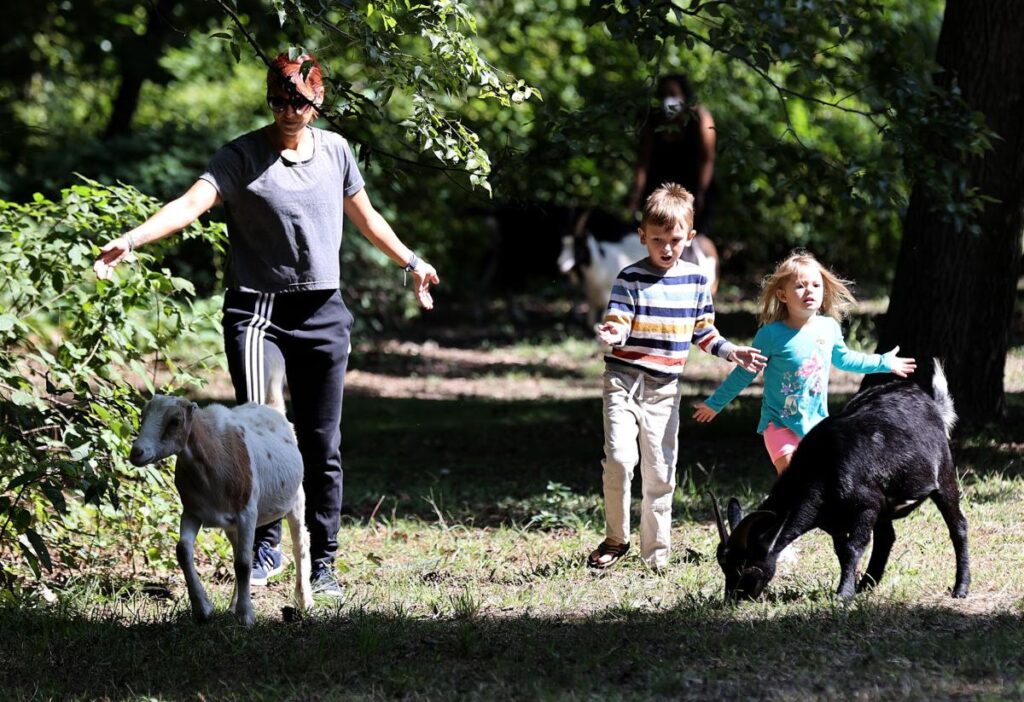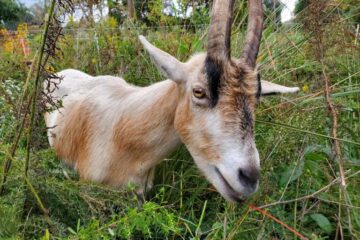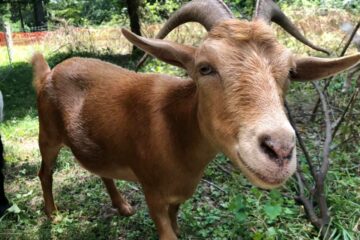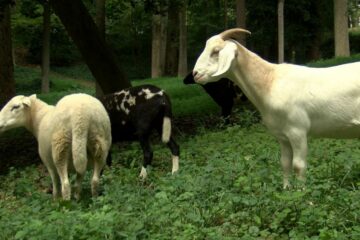Originally posted by the Richmond Times Dispatch
Around 40 goats trotted around the Azalea Garden at Bryan Park in Richmond on Tuesday afternoon, munching on kudzu leaves as they followed the sounds of claps coming from volunteers.
The goats are clearing a bed for azaleas to bloom next spring. The kudzu plant, also known as “the vine that ate the South,” can grow up to a foot a day, causing widespread blockage for native plants .
“It’s a great plant, but it’s out of place and it’s out of balance. So it’s a wildlife killer,” said Kristi Orcutt, founder of RVA Goats and Honey.
On Tuesday, the group held its annual “Running of the Goats,” an educational event for volunteers and the public.

The goats recently cleared an affliction of porcelain berries in the Azalea Garden. Both the kudzu and porcelain berries are invasive species to the park’s ecosystem, specifically affecting azaleas, which they can smother.
Orcutt started the landscaping business five years ago to help clear pesky weeds and plants and replace biocides (chemical substances used to control harmful or unwanted organisms) with live goats and sheep.
For the kudzu project, the pygmy Nigerian goats, over the course of two weeks, clear the vine down to a tamable level.
Brought in decades ago from eastern Asia to use as fodder for wildlife and stock, and later on for erosion control, kudzu now grows in 30 states.
Its rapid growth made it harder not only for azaleas but for about 40 other trees to grow within Bryan Park. Volunteer efforts were simply not enough to tame the vine, but Orcutt’s goats are able to clear around 80 azalea beds in two weeks.
“The kudzu, if allowed to continue, will creep into other areas of the park and begin to steal habitat from wildlife, [and] all these places are impenetrable for recreation,” Orcutt said.
Orcutt originally had a goat to replace her lawn mower, and later got a second to accompany the first . Before she knew it, Orcutt would soon house over 75 goats, as well as sheep and other farm animals. Now, both the goats and sheep have chomped down on parks, schools, cemeteries and yards of many Richmonders.
“Everybody calls me and they’re like, ‘Hey, I’ve got all this ivy and poison ivy taking over my yard but I don’t want to spray anything,” said Orcutt. “It means people are becoming increasingly aware of the risks of using chemicals in their environment.”
The farm animals work seven days a week, and typically from March through Thanksgiving.
Jenna Hopp, 31, joined Orcutt’s team a month ago to learn more about farm animals. She hopes to open a therapeutic farm in the future and offer trauma counseling through beekeeping.
“I’ve developed a chance to connect with [the farm animals] and reconnect with the earth and found it to be really powerful for myself,” Hopp said. “And if it works for me, it’s got to work for someone else.”
For Orcutt, it’s also fun.
“It can be a way of life here, too, even in the middle of the city,” she said. “It’s something really cool for people to see that [they] have never seen before.
“It’s agri-tainment.”





